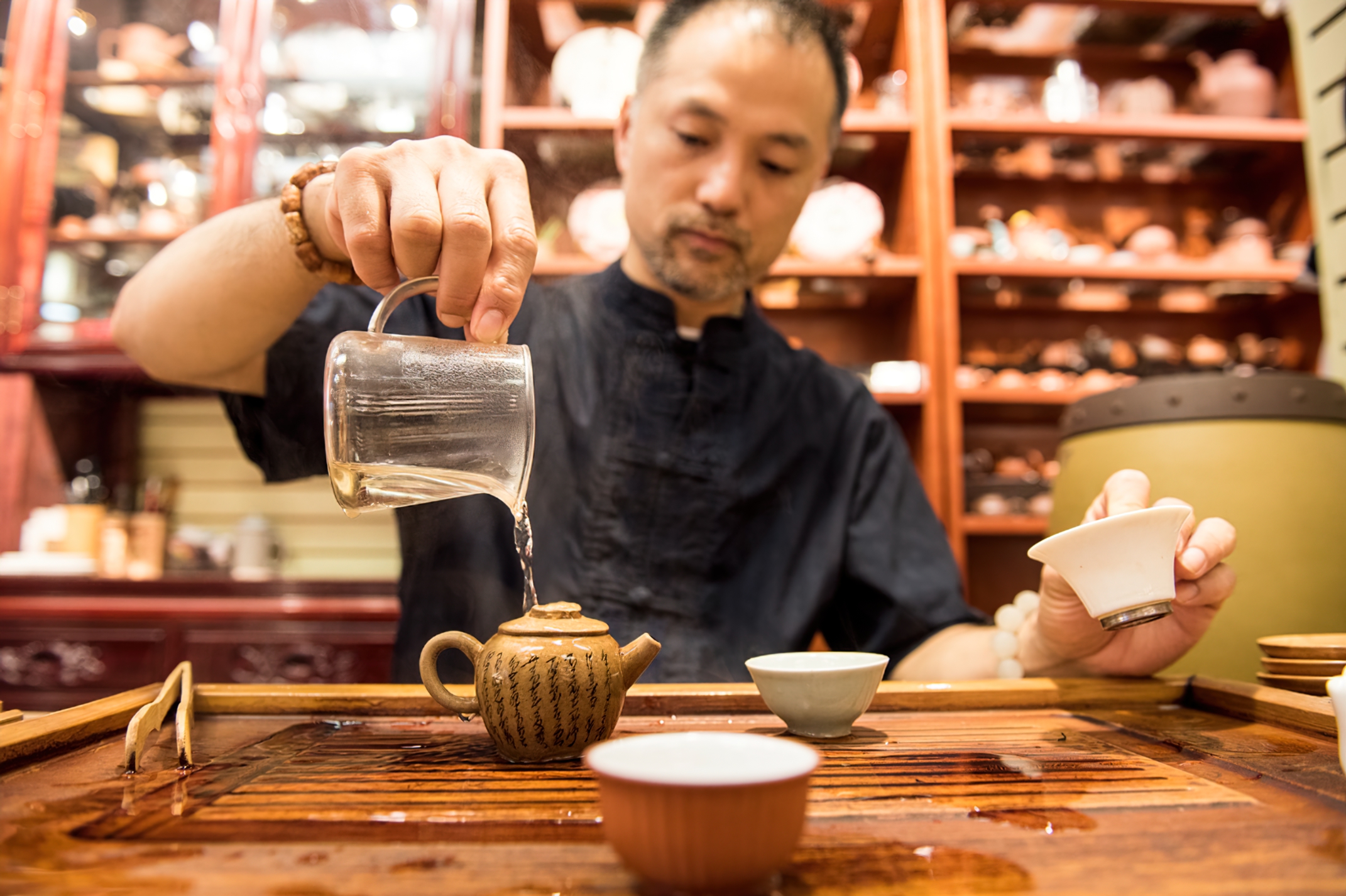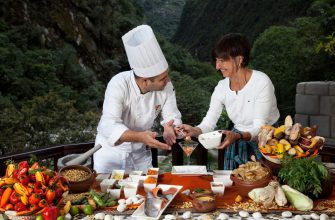The Essence of Tea: China
As we set off on our global tea tour, there is no better place to start than China, the birthplace of tea. Tea drinking has been embedded in Chinese culture for thousands of years, with the first recorded consumption dating back to the Han Dynasty (206 BC–220 AD). Chinese tea is typically brewed in small clay pots, emphasizing patience and appreciation for the brewing process. Green tea, like Longjing, and semi-fermented Oolong tea, are popular in China.
Japan: The Art of Tea
Our journey continues to Japan, where tea is more than a beverage—it’s a ritual. The Japanese tea ceremony, known as “chanoyu,” is a symbol of peace, harmony, and happiness. Matcha, the star of this ceremony, is a powdered green tea that is whisked with hot water in a bowl. But Japan is not only about Matcha. Sencha, a steamed green tea, accounts for 80% of the tea produced in the country, enjoyed for its grassy sweet taste.
India: Tea for Every Taste
![]()
As we leave Japan, we land in the vibrant land of India, the world’s second-largest tea producer. Two types of tea dominate here: Assam and Darjeeling. Assam is a robust black tea, perfect for the famous Indian masala chai—a spiced, milky tea boiled with cardamom, cloves, and other warming spices. Darjeeling, often known as the “Champagne of teas,” offers a more delicate flavor profile, best enjoyed without any additions.
Tea as a Way of Life: United Kingdom
Our next stop takes us to the United Kingdom, where tea has been a staple since the 18th century. The British are known for their love of black tea with milk and sugar, often enjoyed with pastries during the afternoon tea tradition. Yet, tea in the UK is as varied as it is cherished, from strong English Breakfast blends to the fragrant Earl Grey.
Tea in the New World: United States
Our tour concludes in the United States, where tea traditions are a blend of the old and new. Southern sweet iced tea is a classic, particularly in hot weather, while hot tea has gained popularity through specialty tea shops and a growing interest in tea’s health benefits.
Morocco: Tea in the Desert
As we extend our exploration, we find ourselves in Morocco, renowned for its mint tea, also known as Moroccan Whiskey due to its importance in the local culture. This refreshing brew is a mix of green tea, spearmint leaves, and a generous amount of sugar, traditionally served in a beautiful tea set with the tea poured from a height to create a frothy top.
Sri Lanka: An Island’s Gift
Next, we venture to Sri Lanka, formerly known as Ceylon – a name you may recognize from your favorite tea blend. Sri Lanka’s teas are lauded worldwide, with a spectrum from full-bodied black tea to delicate white tea. The country’s high altitude and climate contribute to a tea that’s fragrant and flavorful, ranking among the finest globally.
South Africa: The Red Tea
Our journey then takes us to the heart of South Africa, home to a unique brew – Rooibos. This caffeine-free tea, also known as red bush tea, is an infusion of the Rooibos plant. It’s cherished for its rich, sweet taste and numerous health benefits, enjoyed both hot and cold, often blended with fruits or spices.
Taiwan: The Bubble Tea Phenomenon
Our global tea tour would not be complete without stopping in Taiwan, the birthplace of bubble tea. This playful beverage, also known as boba tea, consists of a tea base mixed with milk or fruit and chewy tapioca pearls. Originating in the 1980s, bubble tea has become a worldwide sensation, reinventing the tea drinking experience.
This concludes our tour of the world’s remarkable tea cultures, a testament to tea’s versatility and its profound impact on societies across the globe. These rich traditions and unique brews underscore not just the importance of tea in the culinary world but also its role in fostering community and hospitality. No matter where you are in the world, a cup of tea signifies a moment of comfort, a pause in the day, and an invitation to connect.
